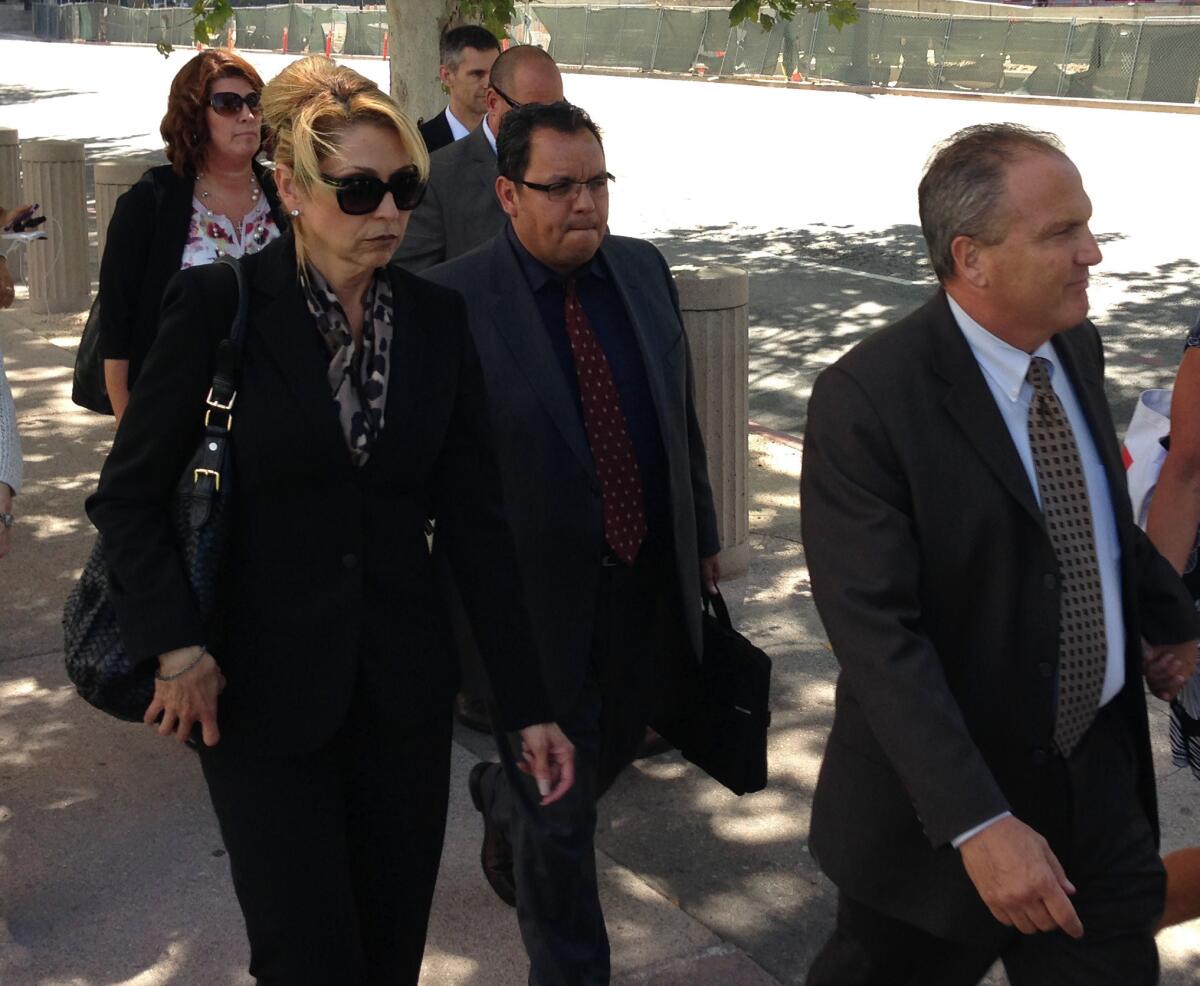Former L.A. County sheriff’s deputies lose appeal in obstruction of justice case

- Share via
A federal appeals court Thursday upheld the convictions of seven former Los Angeles County sheriff’s deputies on charges they tried to thwart an FBI investigation into county jails.
The unanimous decision by the three-judge panel from the U.S. 9th Circuit Court of Appeals clears the way for the former deputies, among them rank-and-file officers and mid-level commanders, to be sent to prison on lengthy sentences.
The ruling also deals a significant blow to Paul Tanaka, who ran much of the agency’s day-to-day operations as undersheriff and was convicted this year on the same set of charges. Tanaka, who was sentenced to five years in prison, vowed to appeal the jury’s decision on grounds similar to those raised by the deputies.
In reaching the decision, the appeals panel rejected an array of objections that attorneys for the group had made about the instructions U.S. District Court Judge Percy Anderson gave to jurors in two 2014 trials. Six of the deputies were tried together in one trial. The seventh was tried alone.
“There is little dispute about what Appellants did, but a good deal of conflict about why they did it — their intent, their motives, their purposes,” Judge Ferdinand F. Fernandez wrote in panel’s opinion. “They say that all was done for benign purposes but the Government says that what they did was for criminal purposes. Ultimately, a properly instructed jury had to decide whose narrative it believed.…These juries were properly instructed, and accepted the Government’s position.”
The cases stemmed from a 2011 fiasco that erupted when sheriff’s officials discovered the FBI was investigating allegations of widespread inmate abuse by deputies working in county jails. In an attempt to derail the probe, the deputies and Tanaka carried out a scheme to keep an inmate informant away from FBI agents, while also trying to intimidate an FBI agent and other deputies, jurors found.
In written filings and oral arguments this summer, attorneys for the deputies had tried to convince the appeal judges that Anderson misled jurors over whether the FBI’s probe was separate from or a part of the eventual grand jury proceedings that led to the deputies being indicted. The distinction was important when considering the legal threshold for finding someone guilty of obstruction of justice, the attorneys argued.
The panel rejected that line of argument, concluding there was “no possibility that the jury understood ‘grand jury investigation’ to refer to things the FBI may have done as part of an investigation independent of the grand jury’s authority.”
The judges went on to dismiss other claims that Anderson’s instructions to the juries had misconstrued the law as far as it related to the deputies’ intentions. In particular, the attorneys argued that jurors should have been told that prosecutors had the burden of proving the deputies’ “sole or primary purpose” was to obstruct the the FBI investigation. By contrast, Anderson – and the appeals court – said defendants can have multiple purposes when carrying out illegal activity.
Although the deputies can petition the entire 9th Circuit to reconsider the appeal, it is rare for the court to grant such a rehearing. Barring that or an unlikely appeal to the U.S. Supreme Court, the deputies, who have remained free on bail pending their appeal, appear headed to prison for sentences Anderson handed down. Anderson is expected soon to set new dates by which the men and one woman must surrender.
More to Read
Sign up for Essential California
The most important California stories and recommendations in your inbox every morning.
You may occasionally receive promotional content from the Los Angeles Times.











